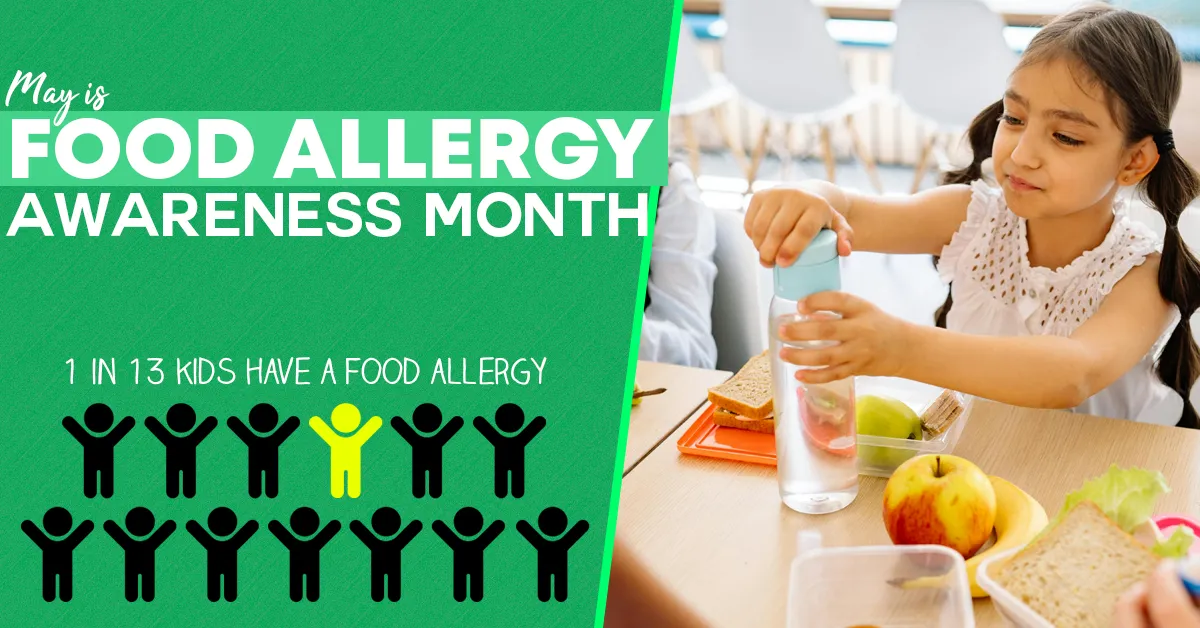Are you among the 33 million Americans with food allergies? That’s about 1 in 10 adults and 1 in 13 children.
Food Allergy Awareness Month highlights not only those with food allergies but also the serious precautions everyone must take to keep those with allergies safe.
What are the Most Common Food Allergies?
The most common allergies are to milk, egg, peanut, tree nuts, wheat, soy, fish, crustacean shellfish, and sesame. When the Food Allergen Labeling and Consumer Protection Act of 2004 (FALCPA) was signed, it was estimated that these foods accounted for 90% of all food allergies.
As a result, the FALCPA required that foods be labeled if they contained the most common food allergy ingredients.
In total, over 170 foods are known to cause allergic reactions. There may be allergens that you are not aware you are allergic to, or have an intolerance to. Allergy testing can be completed at Integracare to estimate your allergies to several common allergens.
Are Food Allergies Becoming More Common?
Food allergies are normally identified during childhood, and the prevalence of food allergies has increased since the turn of the century.
From 1997 to 2011 the CDC estimated a 50 percent increase in the prevalence of food allergies in children. In a similar period, the frequency of peanut and tree nut allergies tripled.
How Dangerous are Allergic Reactions?
Symptoms of a food allergy include hives, asthma, itching inside your mouth, trouble breathing, stomach pains, vomiting, or diarrhea according to Johns Hopkins. Depending on the severity of the reaction, visiting the emergency room may be necessary as allergic reactions can be life-threatening.
This reaction is the result of your body incorrectly identifying the food you are allergic to as an outside danger. Your immune system takes action to fight the danger, which causes the allergic reaction.
What Precautions Can You Take to Manage Food Allergies?
Reading food labels is very important since the most common allergens are required to be listed on the labels. There may also be a mention of cross-contamination. These were foods that themselves do not contain a common allergen, but are made in the same environment as a common allergen.
Be equally careful when eating out. Be sure to make staff aware of your allergy. Consider wearing a medical ID bracelet that includes your allergy and personal information in case something happens. Always carry two doses of your medication (such as an EpiPen).
Lastly, if you do not have a food allergy, but are cooking food for an event (even if you are not aware if someone has an allergy) be careful to not cross-contaminate. Clean after cooking with an allergen before starting to cook something that does not require the allergen. Always label your foods that contain allergens so that everyone is aware.
Can Food Allergies be Cured?
There is no cure for food allergies. The best course of action is to avoid the food that causes your allergic reaction and treat the most severe reaction cases if they come up.


